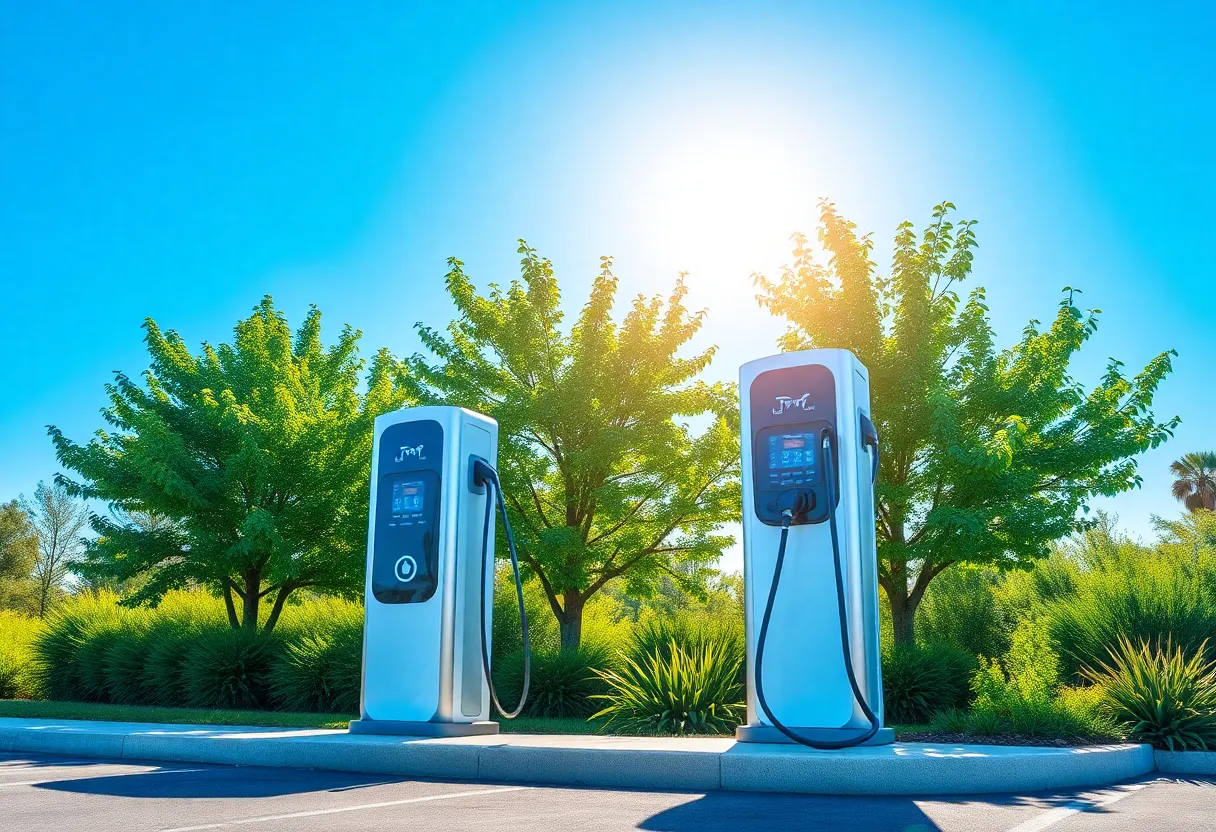News Summary
California, along with 15 other states, has filed a federal lawsuit against the Trump administration for withholding $300 million in electric vehicle (EV) charging infrastructure funding. The lawsuit, led by Attorney General Rob Bonta, claims the federal government is failing to fulfill its legal responsibilities under the National Electric Vehicle Infrastructure Program. This marks California’s 19th legal challenge against the Trump administration, highlighting the state’s commitment to advancing EV infrastructure amid federal opposition to clean energy initiatives. The outcome of this lawsuit is crucial for California’s environmental goals and innovation efforts.
California has joined forces with 15 other states in a federal lawsuit against the Trump administration, demanding the release of billions of dollars intended for electric vehicle (EV) chargers under a bipartisan infrastructure law. The lawsuit, announced by California Attorney General Rob Bonta, calls attention to President Trump’s actions as unconstitutional for withholding these funds that Congress appropriated for EV infrastructure.
The core of the lawsuit revolves around funding from the National Electric Vehicle Infrastructure Program, part of the $1.2 trillion infrastructure bill signed into law by President Joe Biden in 2021. California is expected to receive $300 million from this program for constructing EV charging stations. However, the Trump administration has withheld this funding, prompting California and its partners to take legal action.
This lawsuit is notable as it represents the 19th legal challenge California has launched against the Trump federal government since he took office in January 2017. The legal argument posits that the Federal Highway Administration is failing to fulfill its legal obligation to distribute the funds that Congress has approved, infringing upon statutory and constitutional law.
California Governor Gavin Newsom leveraged this announcement to criticize the Trump administration’s actions, declaring them harmful to American innovation and job creation. He emphasized that withholding funding for EV infrastructure development would significantly hamstring efforts to advance California’s ambitious EV goals.
In addition to California, the lawsuit includes participation from other states including Washington, Colorado, Arizona, Delaware, Hawaii, Illinois, Maryland, Minnesota, New Jersey, New Mexico, New York, Oregon, Rhode Island, Wisconsin, Vermont, and the District of Columbia. This broad coalition underscores the significance of the issue at a national level, as states move to bolster their commitment to electric vehicle adoption amidst shifting federal policies.
Historically, Trump has openly opposed electric vehicles and climate-oriented initiatives, instead advocating for fossil fuel alternatives. With California pushing forward in green technology, the state has made considerable strides, registering approximately 1.3 million electric cars as of September, which far outpaces other states like Florida and Texas. Recent data reveals that California’s EV charging stations have now surpassed the number of traditional gasoline pumps, highlighting a significant shift in transportation infrastructure.
Bonta pointed out the pressing need for federal investment to support California’s ambitions, particularly in light of fierce global competition from countries like China and Norway, which are leading the charge in electric vehicle adoption. Furthermore, California has mandated that by 2035, all new cars and passenger trucks sold in the state must be zero-emission, necessitating an estimated 1.2 million charging stations by 2030 to meet consumer demand.
The federal government’s decision to freeze funding is seen as a setback for California’s EV initiatives and broader climate objectives. Early in his administration, Trump had signed an executive order halting funding for projects like the National Electric Vehicle Infrastructure Program, raising concerns about the legality and impact of such a move.
The lawsuit aims to reinforce Congress’s authority in the allocation of funds for infrastructure projects, countering any executive orders that undermine these decisions. According to recent statistics, California has sold nearly two million zero-emission vehicles, accounting for one-third of all such sales across the U.S., which underscores the importance of continued federal support for expanding charging infrastructure.
California officials and environmental advocates have expressed that failure to enhance charging infrastructure would obstruct the state’s ability to cut greenhouse gas emissions and achieve its climate goals, making the outcome of this lawsuit critical for California’s environmental future.
Deeper Dive: News & Info About This Topic
- Pleasanton Weekly
- Wikipedia: Electric Vehicle Infrastructure
- New York Times
- Google Search: California electric vehicle lawsuit
- San Francisco Chronicle
- Encyclopedia Britannica: Electric Vehicle
- Politico
- Google News: California EV charging funding
- KCRA
- Google Scholar: California lawsuit EV charging

Author: STAFF HERE HOLLYWOOD
The Hollywood Staff Writer represents the experienced team at HEREHollywood.com, your go-to source for actionable local news and information in Hollywood, Los Angeles County, and beyond. Specializing in "news you can use," we cover essential topics like product reviews for personal and business needs, local business directories, politics, real estate trends, neighborhood insights, and state news affecting the area—with deep expertise drawn from years of dedicated reporting and strong community input, including local press releases and business updates. We deliver top reporting on high-value events such as the Hollywood Bowl summer concerts, the Hollywood Christmas Parade, film premieres at TCL Chinese Theatre, and festivals at the Magic Castle. Our coverage extends to key organizations like the Hollywood Chamber of Commerce and Visit Hollywood, plus leading businesses in entertainment, dining, and tourism that define the local economy. As part of the broader HERE network, including HERELosAngeles.com, HEREBeverlyHills.com, HEREAnaheim.com, and HEREHuntingtonBeach.com, we provide comprehensive, credible insights into Southern California's dynamic landscape.



